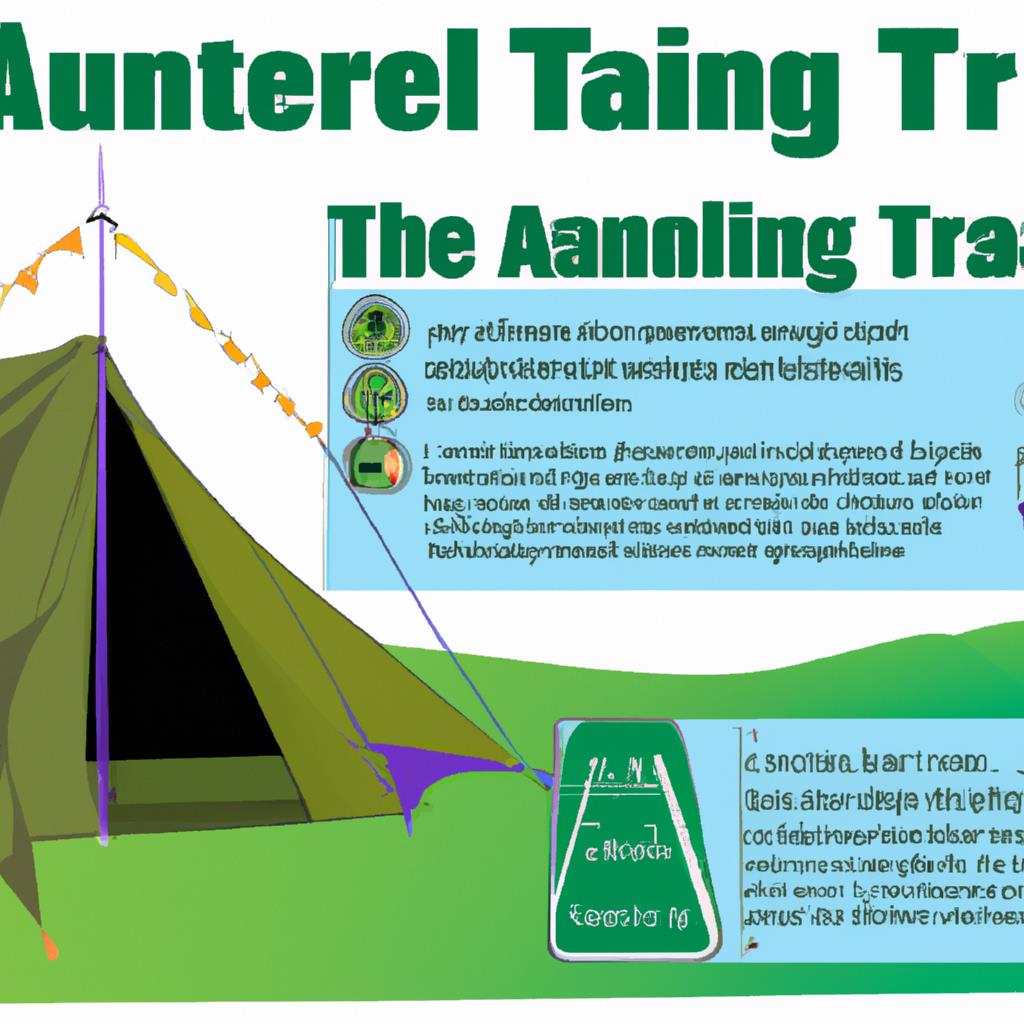One of the greatest experiences for outdoor enthusiasts is hiking along the Appalachian Trail and camping in the wilderness. However, safety should always be a top priority when tenting along the trail. With careful planning and preparation, you can ensure a safe and enjoyable camping experience. Here is a guide to tenting safely along the Appalachian Trail:
First and foremost, make sure to familiarize yourself with the rules and regulations of camping along the Appalachian Trail. Different sections of the trail may have specific guidelines regarding tenting and camping sites. It is essential to follow these rules to protect the environment and ensure a peaceful experience for yourself and fellow campers.
When choosing a tenting site, look for designated camping areas along the trail. These sites are typically marked with signs and provide a safe and suitable area for camping. Avoid setting up your tent in undesignated areas to prevent damage to the ecosystem.
Before setting up your tent, do a thorough inspection of the area to ensure it is safe and free from any potential hazards. Look for signs of wildlife activity, such as animal tracks or droppings, and avoid camping near sources of water to reduce the risk of encountering dangerous animals.
When setting up your tent, make sure to secure it properly to the ground to prevent it from being blown away by strong winds. Use sturdy tent stakes and guylines to anchor your tent securely. Additionally, avoid camping on sloped or uneven ground to prevent accidents while sleeping.
It is also essential to practice Leave No Trace principles when tenting along the Appalachian Trail. Pack out all trash and waste and dispose of it properly at designated trash receptacles. Do not disturb the natural environment by leaving behind any items or debris.
Be prepared for changing weather conditions when tenting along the trail. The weather can be unpredictable, so make sure to pack appropriate clothing and gear to stay warm and dry. Keep an eye on the forecast and be ready to adjust your plans accordingly to stay safe in inclement weather.
When cooking and storing food at your tenting site, be mindful of wildlife. Store all food and scented items in bear-proof containers or bear bags to prevent attracting animals to your campsite. Cook and eat away from your tent to minimize the risk of encounters with wildlife.
In case of an emergency, always have a plan in place for contacting help. Make sure to carry a first aid kit, communication devices, and a map of the trail to navigate your way back to safety if needed. Familiarize yourself with emergency procedures and contact information before embarking on your camping trip.
Finally, respect other hikers and campers along the Appalachian Trail. Keep noise levels to a minimum and be considerate of those around you. Practice good trail etiquette and be courteous to fellow outdoor enthusiasts to promote a positive camping experience for everyone.
By following these guidelines and practicing safe tenting habits, you can enjoy a memorable camping experience along the Appalachian Trail. Remember to always prioritize safety and environmental conservation when venturing into the wilderness. Happy camping!


leave a comment